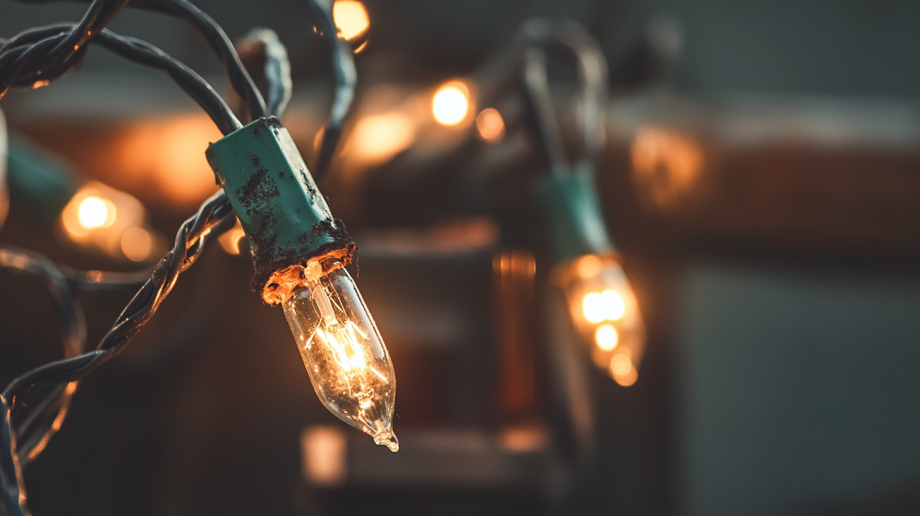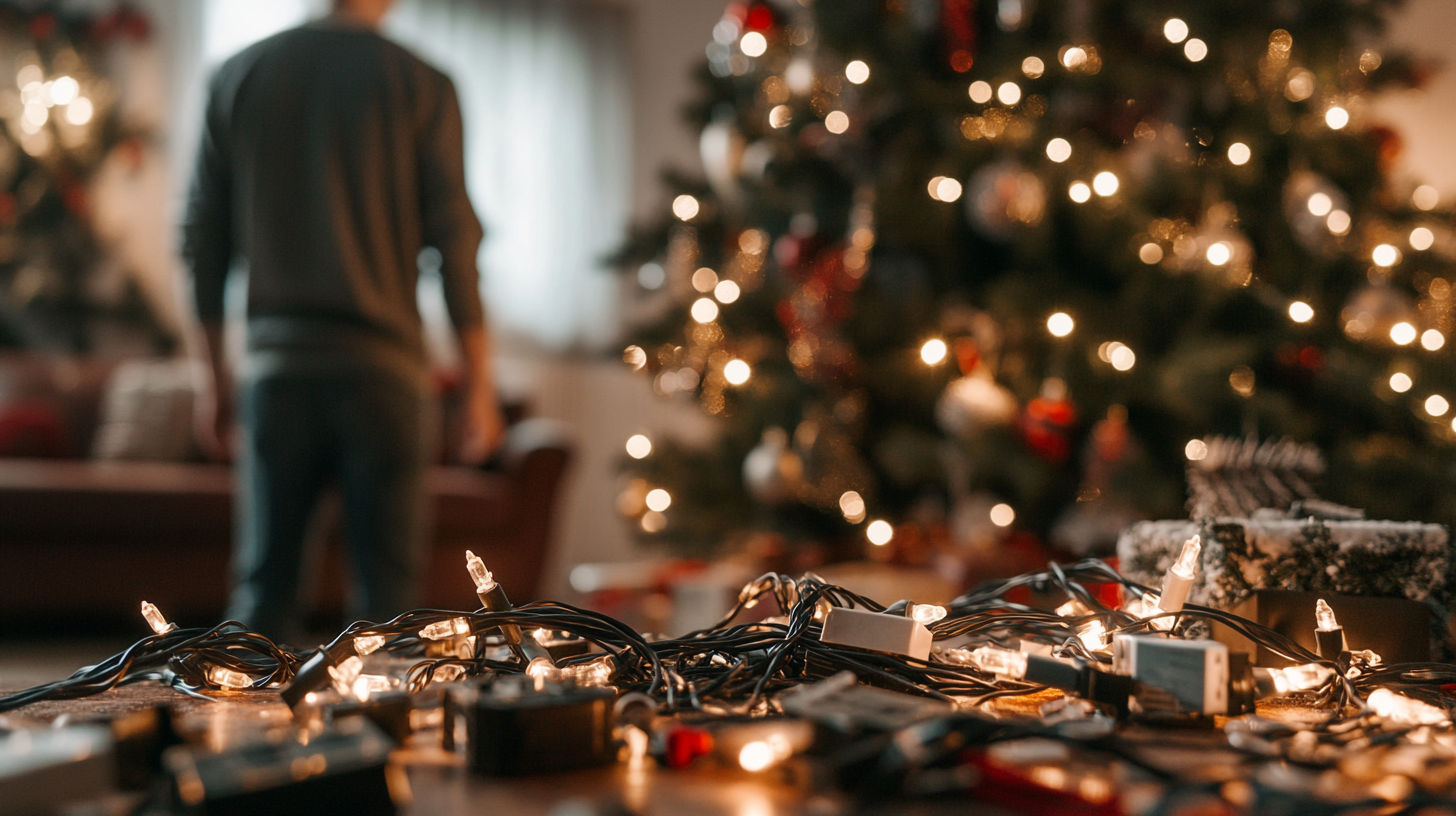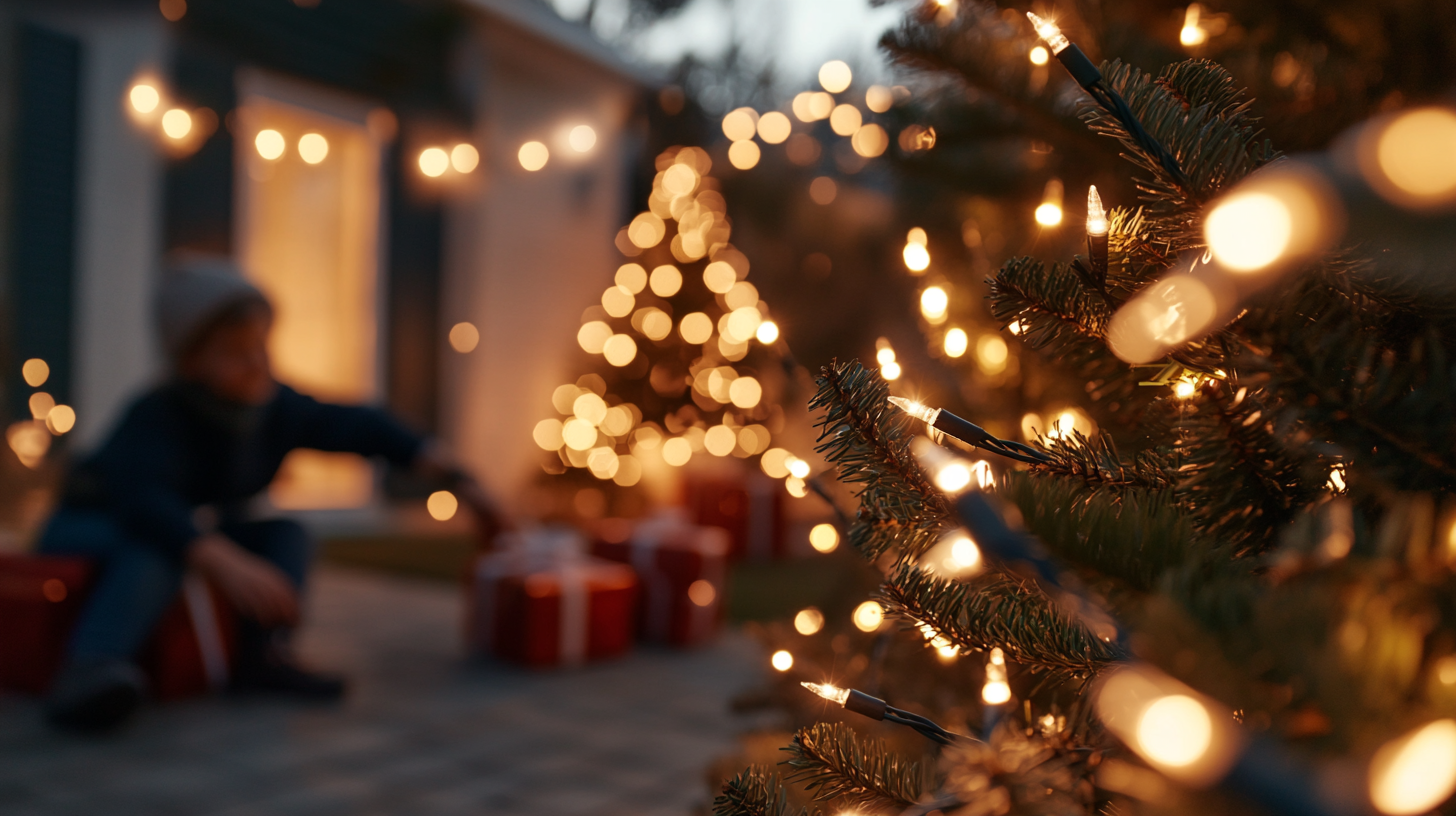
Christmas Lights Keep Blowing Fuse (Solved)
Nothing can dampen the holiday spirit faster than a string of dark lights.
If you’re tired of constantly replacing fuses, don’t worry – you’re not alone. Many people face this annoying issue every year.
In this post, I’ll shed some light on why your Christmas lights keep blowing fuses, and what to do about it. I’ll also give you some tips to prevent it from happening again too.
Table of Contents
ToggleWhy Do My Christmas Lights Keep Blowing Fuse

First things first, let’s get to the bottom of why this keeps happening.
There are a few usual suspects you need to look at:
#1 Connecting Too Many Strands
The most common reason why Christmas lights blow fuses is because there are too many strands connected together.
Most light sets come with instructions about how many you can string together.
Usually, it’s about two or three strands for normal incandescent lights.
If you go overboard and string together too many, you are asking the fuse to handle more than it was designed for. You’ll end up overloading the circuit and – poof! – there goes your fuse.
Also Read: Top Outdoor Lighting Ideas for Every Home Style
#2 Damaged Or Frayed Wires
The next most common reason is damaged or frayed wires.
Our Christmas lights go through quite a bit. We string them up, take them down, and sometimes they might not get stored as carefully as they should between seasons.
Over time, this wear and tear can crack the insulation or fray the wires, especially near the plug ends or where they connect to the bulbs.
Exposed wires like these can create short circuits, where electricity takes an unintended path.
This irregular flow of electricity causes the fuse to blow, acting like a shut-off valve to prevent further damage.
#3 Overloaded Circuits
Sometimes, the problem isn’t with the lights but with the electrical circuit they’re plugged into.
Think about all the holiday decorations we use – multiple strands of lights, inflatable decorations, maybe even those cool animated displays.
If you plug too many of these into the same outlet or circuit, you might be asking it to handle more electricity than it’s designed for.
When a circuit is overloaded like this, the fuse will blow as a protective measure.
This is especially common in older homes with less robust electrical systems.
#4 Faulty Or Damaged Bulbs
Here’s something that might surprise you – sometimes a single faulty bulb can cause problems for an entire string of lights.
A bad bulb can create what we call a short circuit.
This means the electricity is taking an unintended path through the circuit.
When this happens, it can lead to a sudden increase in electrical current, which in turn causes the fuse to blow.
The tricky part is that it’s not always obvious which bulb is causing the problem. A faulty bulb might look perfectly fine, or it might appear dim or flicker intermittently.
Also Check Out Our Christmas Light Installation Services.
#5 Corroded Bulb Contacts
Last but certainly not least, is a cause that often goes unnoticed – corrosion on bulb contacts.
This is rather common on outdoor lights that are exposed to the elements. Over time, moisture and air can cause the metal contacts on the bulbs to corrode.
You might notice a greenish or white crusty substance on the metal parts. This corrosion increases the resistance in the circuit.
What does that mean? Well, when electricity encounters resistance, it generates heat.
If there’s too much resistance, it can cause overheating, which in turn can lead to a blown fuse.
What To Do If Christmas Light Fuse Keeps Blowing
Now that we’ve identified some potential problems, let’s talk about how to fix them. And don’t worry, you don’t need to be an electrical whiz to tackle this.
Look For Visible Damage To Wires Or Bulbs
First things first, take a close look at your light strings.
Are there any frayed wires? Loose connections? Cracked bulbs?
Any of these could be the issue.
Don’t rush this part – really examine those lights. Check every inch of the wire, paying extra attention to the areas near the plug and where the wire meets each bulb.
If you spot any damage, that strand might need to retire from your holiday display.
Test Each Strand Separately
If you can’t spot any obvious damage, it’s time to test each strand individually.
Plug each one into an outlet by itself and see what happens.
This can help you figure out if the problem is with a particular strand or if it only occurs when you connect multiple strands.
Start with one strand and work your way through your collection.
If a single strand works fine on its own but causes issues when connected to others, you might be dealing with an overload problem.
Also Read: Lighting Up Your Walkways and Driveways for Safety
Clean Bulb Contacts And Use Dielectric Grease
Remember what we talked about corrosion? Here’s how to deal with it.
Gently clean each bulb’s metal contacts with some fine steel wool or a small wire brush. Be careful not to damage the bulb or the socket.
Once they’re clean, apply a tiny bit of dielectric grease to the contacts.
This not only helps improve conductivity but also helps prevent future corrosion.
Replace Blown Fuses With The Right Ratings
When you’re replacing blown fuses, make sure you use the right ones. Always check the manufacturer’s specifications and use fuses with the correct amperage rating.
It might be tempting to use a higher-rated fuse to stop it from blowing, but this is a big no-no.
It’s there to protect you, so let it do its job!
If you’re not sure what fuse to use, don’t guess – check the packaging or their website.
How To Stop Xmas Lights from Blowing The Fuse Again

The best way to deal with this problem is to prevent it from happening in the first place.
Here are some of my tips to keep your lights shining bright:
- Stick to the manufacturer’s guidelines about how many strands you can connect.
- Think about switching to LED lights. They’re usually more forgiving about how many you can connect, and they’re better for your energy bill too.
- For outdoor decorations, use extension cords and outlets that are rated for outdoor use.
- When the holidays are over, store your lights carefully to avoid damaging the wire. A little care now means less hassle next year.
- At the start of each holiday season, give your lights a thorough inspection and cleaning.
- Spread your light displays across different circuits to avoid overloading any one circuit.
Follow these tips and I can promise you, your Christmas lights will never blow the fuse again!
Bottom Line
Dealing with Christmas lights that keep blowing fuses can be a real pain, but now you know why it happens, how to fix it and how to avoid it in the first place.
Always remember, safety comes first when you’re dealing with anything electrical.
If you’re ever unsure about something, it’s always best to ask a professional electrician for help.
Our Blogging Experts

James Zogran – Head of Operations
At Dominion Lightworks, we’re a team of experienced lighting professionals dedicated to providing exceptional lighting solutions for residential and commercial properties.
Our Locations
Christmas Lighting in Richmond, VA
1394 Manakin Rd
Manakin Sabot, VA 23103
Mon-Fri 7 am – 10 pm
Sat-Sun Closed
Landscape Lighting in Richmond, VA
595 Weaver Brook Walk
Ridge, VA 23233
Mon-Fri 7 am – 10 pm
Sat-Sun Closed







